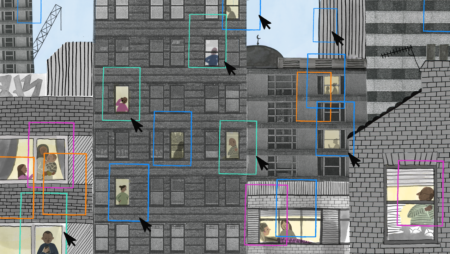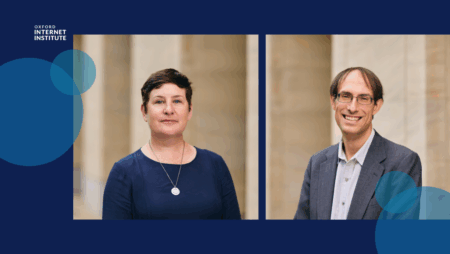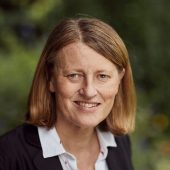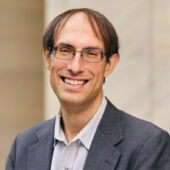
Conversations between governments and citizens in a digital society
This project seeks to understand how citizens listen and speak to public institutions, and how alternative AI-based models and framing might encourage democratic communication.

The Internet has transformed political behaviour, from voting and campaigning for policy change, to protest and even revolution. This poses a challenge to states, as political movements become more turbulent, unpredictable, and societies harder to govern.
To understand this radically transformed political world, we are re-examining the models and conceptual frameworks of political science and theory, and developing social data science methodologies to understand political behaviour.

This project seeks to understand how citizens listen and speak to public institutions, and how alternative AI-based models and framing might encourage democratic communication.

This project examines the fragmented legislations and legal landscape that governs the development, sale, and deployment of AI technologies used for government surveillance.

Based on a case-study analysis of bias in the Chicago Crime Prediction Algorithm, this project explores the extent to which evidence of algorithmic bias can be used to guide policy responses to the societal disparities replicated in these tools.


4 December 2025
A new joint study from the Oxford Internet Institute (OII) and the AI Security Institute (AISI) uncovers how conversational AI sways political beliefs and why it works.

27 October 2025
The OII is pleased to announce Dr Scott A. Hale appointed as its next Director, and Dr Kathryn Eccles as Deputy Director.

24 September 2025
A new paper from the Tony Blair Institute for Change, featuring a guest contribution from the OII’s Professor Helen Margetts, calls for government action to build better public trust in AI.

Stimson, 27 January 2026
Winning the AI competition won’t come from being fastest in frontier innovation but from deploying AI safely and building public trust. OII DPhil student Lisa Klaassen comments on the US–China AI competition.

The National Interest, 27 January 2026
In a by-lined blog, OII DPhil student Lisa Klassen together with Broderick McDonald explore US-China AI competition and consider who will be the winners in AI deployment race.

Network Berlin, 05 January 2026
Dr Fabian Braesemann presents his thesis that there are ways to control the housing market without strict bans and long-term procedures.


Professor of Society and the Internet
Helen Margetts is Professor of Society and the Internet, a political scientist specialising in digital government and politics. She was Director of the OII from 2011-18. She is a Professorial Fellow of Mansfield College.
The OII is home to some of the top academics studying digital politics and government, including Professor Helen Margetts. She is a political scientist specialising in the relationship between digital technology and government, politics and public policy. She is an advocate for the potential of multi-disciplinarity and computational social science for our understanding of political behaviour and development of public policy in a digital world.
She has published over a hundred books, articles and policy reports in this area, including Political Turbulence: How Social Media Shape Collective Action (with Peter John, Scott Hale and Taha Yasseri, 2015); Paradoxes of Modernization (with Perri 6 and Christopher Hood, 2010); Digital Era Governance (with Patrick Dunleavy, 2006, 2008); and The Tools of Government in the Digital Age (with Christopher Hood, 2007).
Professor Margetts joined the OII in 2004 from University College London where she was a Professor in Political Science and Director of the School of Public Policy. She began her career as a computer programmer and systems analyst with Rank Xerox after receiving her BSc in mathematics from the University of Bristol. She returned to study at the London School of Economics and Political Science in 1989, completing an MSc in Politics and Public Policy in 1990 and a PhD in Government in 1996. She worked as a researcher at LSE from 1991 to 1994 and a lecturer at Birkbeck College, University of London from 1994 to 1999.

Research Associate
In 2022 Jonathan Bright became the Head of AI for Public Services at the Turing Institute, having previously been a faculty member of the OII. A political scientist, he specialises in computational and ‘big data’ approaches to the social sciences.

Director, Associate Professor, Senior Research Fellow
Dr Scott A. Hale is Director, Associate Professor and Senior Research Fellow. He develops and applies computer science techniques to the social sciences focusing on increasing equitable access to quality information.

Professor of Internet Studies
Philip N. Howard is a professor of sociology, information, and international affairs. He is Director of the Programme on Democracy and Technology, and is a Professorial Fellow of Balliol College.
